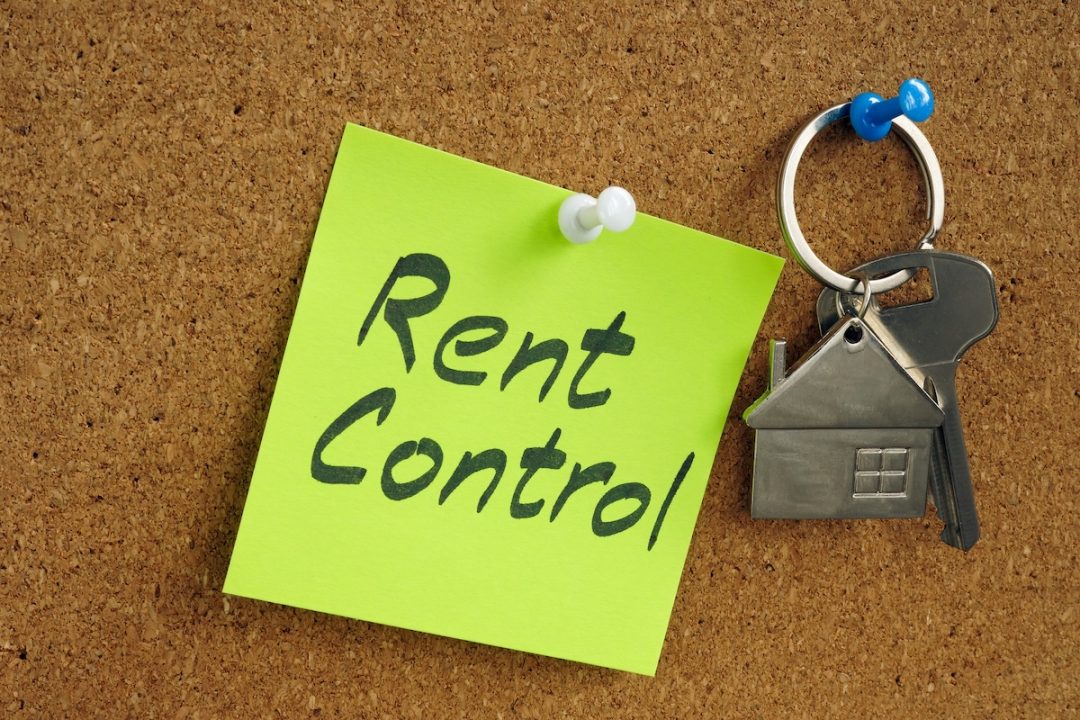
From rent caps to “price-gouging” laws, a new wave of so-called consumer-protection laws is sweeping state capitols. These measures are marketed as compassion in a crisis — or “fairness” in housing — but their substance is the same: command-and-control price fixing that violates the Constitution, tramples private-property rights, and sabotages the free market’s ability to allocate goods and services when people need them most.
Three recent bills illustrate the trend. Alabama’s House Bill 528 (HB528) and Virginia’s House Bill 1301 (HB1301) expand anti-gouging controls to more transactions and longer periods after emergencies. New Jersey’s Assembly Bill 3361 (A3361) imposes rent control on manufactured-home sites. Nebraska’s Legislative Bill 266 (LB266), however, is a rare bright spot, preempting local rent control and affirming property rights. Together, these bills spotlight the central question: Will states defend a constitutional, republican system rooted in liberty and voluntary exchange, or drift toward administrative despotism under the banner of “consumer protection”?
Protecting Property and Contract Rights
America’s Founders understood what modern lawmakers too often forget: Price controls are a form of compelled exchange that violates liberty. The U.S. Constitution safeguards that liberty in multiple places:
- Fifth Amendment: “Nor shall private property be taken for public use, without just compensation.” Price ceilings that force owners to sell below market value are regulatory takings in substance, if not in name.
- Article I, Section 10: “No State shall … pass any … Law impairing the Obligation of Contracts.” When a legislature dictates the permissible price, term, or escalation of a private lease or service, it impairs the parties’ agreed-upon obligations.
- Ninth and 10th Amendments: The people retain unenumerated rights, and powers not delegated to the federal government are reserved to the states or the people. These clauses limit government; they do not license it to control every transaction.
- 14th Amendment (due process and equal protection): Arbitrary economic edicts that single out owners for special burdens invite due-process and equal-protection concerns.
Consumer-protection statutes also collide with first principles. The Declaration of Independence identifies unalienable rights — life, liberty, and property — and charges government to secure them. Free exchange is a peaceful exercise of those rights, and upholds one’s pursuit of happiness. Substituting bureaucratic fiat for voluntary exchange undermines the moral basis of self-government.
Price Controls in a Crisis
When a hurricane hits or supply chains rupture, prices rise. That is not exploitation; it is information and supply and demand. Higher prices ration scarce goods and signal entrepreneurs to bring more supply into the affected area — quickly. Smother those signals, and you smother the response.
Alabama’s HB528 expands emergency price-gouging prohibitions beyond commodities and facilities to “any service.” That means plumbers, debris-removal crews, IT recovery specialists, and countless others can be accused of “unconscionable” pricing precisely when demand spikes and labor, fuel, and insurance costs surge. HB528 further entangles private exchange in arbitrary government controls. The predictable result is fewer willing providers, slower recovery, and black-market work with no consumer recourse at all.
Virginia’s HB1301 broadens “consumer transaction” to include business-related goods and services, and extends the “time of disaster” to the entire state-of-emergency period or 30 days after, whichever is longer. The bill converts extraordinary, short-term police powers into a standing economic micromanagement tool. By suppressing the very price signals that draw in out-of-area inventory and crews, HB1301 risks longer shortages and slower rebuilding — the opposite of what Virginians need after a disaster.
Beyond economics, these measures are constitutionally unsound. “Unconscionable” is an elastic, subjective standard. Giving the executive branch license to brand ordinary, consensual pricing as a quasi-crime during open-ended “emergencies” invites arbitrary enforcement — a due-process problem — and impairs contracts formed at market rates, in tension with Article I, Section 10 of the Constitution. If a roofer and homeowner voluntarily agree to a price reflecting scarce shingles and overtime crews, what constitutional authority empowers the state to void their bargain?
Rent Control by Statute
New Jersey’s A3361 caps annual rent increases for manufactured- and modular-home sites at two percent, and arms tenants with penalties, attorneys’ fees, and eviction defenses against “overcharges.” This is textbook rent control — the very policy that has devastated housing markets from New York to San Francisco.
Rent control is constitutionally defective and economically destructive for the following reasons:
- Takings and due process: Capping returns below market is an ongoing partial taking of the owner’s investment and a deprivation of the right to a reasonable return. Dressing it up as “consumer protection” does not change the confiscatory effect.
- Impairment of contracts: A3361 reaches into existing and future leases, dictating price terms the parties may not freely adjust, in direct conflict with Article I, Section 10.
- Equal protection: The bill confers targeted economic benefits on a favored tenant class while making a disfavored property class — manufactured-home-park owners — absorb uncompensated public burdens.
- Property rights: Rent control violates the fundamental principle that ownership includes the right to set the terms of use and exchange. By substituting state judgment for voluntary agreement, A3361 subordinates private property to political expediency, undermining the Constitution’s protection of liberty and the free market as essential conditions of a just and prosperous society. As stated, life, liberty, and property are core American principles, and impeding on one’s property rights infringes on the pursuit of happiness.
Economically, the results are predictable: shortages of sites, deferred maintenance, park closures or conversions, and higher entry costs for future tenants as supply shrinks. When government forbids prices from reflecting reality (raising taxes, insurance premiums, and utility and repair costs), owners cut back or exit — and the very families politicians claim to protect face dwindling options.
This same unconstitutional mindset was imposed at the federal level. In July 2024, President Joe Biden proposed a nationwide rent-cap plan limiting annual increases to five percent for landlords owning more than 50 units. The National Association of Realtors, National Apartment Association, and National Multifamily Housing Council quickly condemned the proposal, calling rent caps an “infringement upon private property rights.” These groups warned that such policies inevitably reduce housing supply, deter construction, and harm the very renters they claim to help. As NAR President Kevin Sears explained, “Price controls may seem appealing, but they have backfired on local governments and harmed the people we need to help the most.” Even homebuilders cautioned that Biden’s proposal would worsen the housing shortage by discouraging investment. The lesson is clear: Whether imposed in Trenton or from the White House, rent control is economic folly and constitutional heresy.
A Needed Course Correction
Nebraska’s LB266 preempts local rent-control ordinances on private residential property (with limited exceptions for voluntary arrangements or policies that increase supply). While state preemption is no panacea, LB266 halts a patchwork of municipal price controls that violate property rights, distort markets, and invite endless litigation.
LB266 aligns with constitutional principles:
- It protects property and contracts by removing local caps that would otherwise commandeer private assets.
- It respects federalism as rightly understood. Cities are creatures of the state; when municipalities stray into confiscatory controls, the state may (and should) fence them in.
- It starts where real solutions live: supply. By blocking rent caps and allowing land-use reforms that expand housing, LB266 points away from coercion and toward production and voluntary exchange.
The Human Cost of “Compassionate” Controls
Supporters insist price ceilings shield the vulnerable. In reality, they produce the very harms they purport to cure:
- During emergencies, anti-gouging rules reduce inbound shipments of fuel, supplies, and labor. Consumers face empty shelves and long waits instead of higher prices and immediate availability.
- In housing, rent caps trap families in place, deter new investment, and shift costs into “fees,” queueing, and favoritism. The poor lose most when supply dries up.
- In services, censoring “unconscionable” prices during disasters dissuades roofers, nurses, contractors, and data-recovery teams from entering risky zones. Communities stay broken longer.
Markets are not perfect, because people are not perfect. But, unlike government laws, markets adapt. Prices coordinate millions of decentralized decisions; they are the traffic signals of a free people. Switch them off, and you get gridlock.
A Republican Remedy, Not Democratic Despotism
The Founders distrusted democracy precisely because majorities can plunder minorities — including property owners — under color of “fairness.” That is why the U.S. Constitution requires states to have a republican form of government (Article IV, Section 4) with checks and balances and fixed limits on power. Ballot-driven price controls, emergency decrees that never end, and bureaucratic discretion over private bargains all belong to the “excess of democracy” that Elbridge Gerry, vice president to James Madison and a Founding Father, warned against, not constitutional republicanism.
Real Solutions That Respect Liberty
If lawmakers truly want to lower costs and expand access — in housing, in disasters, and in daily life — they should abandon coercion and restore the conditions for enterprise:
- End emergency price-control statutes and focus on antitrust fraud enforcement against actual deception, not consensual pricing.
- Cut red tape that restricts supply: zoning barriers to infill and new parks, certificate-of-need schemes, and occupational-licensing cartels that throttle skilled trades.
- Lower taxes and fees that owners must pass along to consumers and tenants.
- Encourage voluntary charity and mutual aid in crises, which meet needs faster than bureaucratic enforcement and without violating rights.
- Remember the Constitution: Do not impair contracts, do not take property by regulation, and do not convert emergencies into pretexts for permanent economic control.
Hold Legislators Accountable
Alabama’s HB528, New Jersey’s A3361, and Virginia’s HB1301 are cautionary tales of unconstitutional overreach masquerading as compassion. Nebraska’s LB266 shows there is another path — one that respects property, contracts, and the proven wisdom of free markets.
The New American and The John Birch Society urge citizens to monitor what politicians do, not what they say. Demand that your representatives protect the rights of owners and consumers alike by getting government out of the business of fixing prices. A free people do not need bureaucrats to decide what their labor, property, and risk are “worth.” They need a constitutionally limited government that secures liberty so families, churches, and businesses can meet needs through voluntary exchange — in good times and in bad.
To learn more about how your state and federal legislators vote on issues of constitutional importance, visit The New American’s Freedom Index and state Legislative Scorecards. You can also stay informed about what is happening in your state legislature and in Congress by signing up for legislative alerts here.











